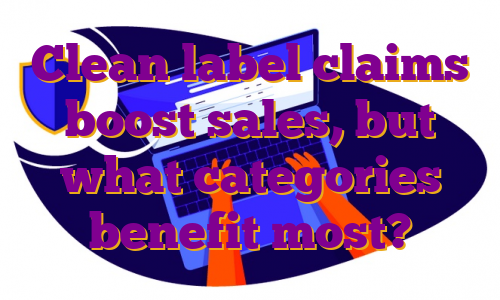The Paris-based company said it is creating caseins and dairy fatty acids with precision fermentation in order to develop cheeses that are virtually indistinguishable from the real thing, without the environmental, animal welfare and food safety problems associated with animal agriculture.After the successful pre-seed round, it now plans to launch its first industrial production of animal-free dairy ingredients within the next 24 months as a B2B company. “We will sell a ‘cheeseable milk’ solution to food partners,” a spokesperson explained to FoodNavigator. “We will offer formulated ingredients and the formulation know-how to help them develop and produce innovative, tasty and sustainable dairy products.”To make the caseins and dairy fatty acids, the Paris-based company programmes yeasts to produce milk proteins and fatty acids in exchange for mineral and plant nutrients in bioreactors. “Our animal-free ingredients have the same functional, nutritional and organoleptic characteristics as conventional animal ingredients,” we were told. “We then harvest these milk proteins and fatty acids and mix them with other ingredients to develop a reconstituted milk, which will coagulate and turn into cheese by fermentation. We are developing multiple subtypes of casein. Part of our process will be protected by our IP.” ‘Going beyond what’s available in the plant-based reign’The international cheese market is worth $200B and growing. Nutropy said its innovative approach, and its close collaboration with industrial cheese producers and French cheese specialists, mean it is primed to lead the development of a B2B ‘cheesable milk solution’ producing many types of cheese to expand the global cheese market to new frontiers.“As cheese lovers, we know the importance of cheese in our gastronomic culture and want to offer consumers a wide range of cheeses free of lactose and dietary cholesterol that are produced in an environmentally friendly and sustainable manner,” said Nutropy CEO Nathalie Rolland.The first products it is developing are premium aged French cheeses similar to Camembert. “Thanks to our tech and expertise we can develop many types of cheeses,” the spokesperson continued. “We decided to develop dairy fatty acids to improve the sensory profiles of our cheeses by going beyond what’s available in the plant-based reign and bringing us as close as possible in taste to animal cheeses.”A growing number of companies are using precision fermentation to make cheese and milk alternatives. The differentiator for Nutropy’s business is its own unique technology to produce and formulate our ingredients, it claimed. “We are the only company to provide a complete animal-free ‘cheeseable milk’ solution for plug and play use by dairy producers. Only a few companies are developing caseins and dairy fatty acids and not all companies have a food science team working on the development of animal-free cheeses, especially complex, premium cheeses.”The quest for more environmentally sustainable production methods is obviously a big draw of the precision fermentation sector. Nutropy claimed its process has the potential to use significantly fewer natural resources and limit the greenhouse gases and water pollution that accompany animal-produced dairy products.“We have reason to believe our processes will consume significantly fewer resources and pollute less than their animal counterparts. We have data on the production of animal-free products through fermentation and we are discussing with consultants and universities to work together on an LCA of our process once we reach higher scales.”Precision fermentation start-ups acknowledge that achieving scale is a hurdle to commercialisation. What’s more, the European Commission is yet to approve its first product made this way. Nutropy is therefore intent to demonstrate that fermentation-derived milk ingredients are a thriving and promising domain that is supported by an ecosystem of startups, medium and large sized companies across the value chain and research institutions. “We are active members of this ecosystem, through both Nutropy and the non-profit organization founded by our CEO, Agriculture Cellulaire France/CellAg France. Furthermore, the fact that fermentation-derived ingredients are an essential player in securing food sovereignty and reducing our environmental impact three times a day has been recognized by the existence of many recent European grants for our subject.”The €2M pre-seed round was led by venture firms Beast, Big Idea Ventures and Trellis Road. The round was supported by VegCapital, FoodHack, Techmind, a few international business angels with experience in technology, food technology and agriculture and the French government.“We’ve long been convinced of the critical role of casein in the shift away from animal cheese products,” said Anna Ottosson, founding partner at Trellis Road.”We are excited about Nutropy’s technology and the quality of the products the team has been able to produce. I tried their premium cheese at one of our events, and the texture and taste were indistinguishable from premium, animal-based cheese. Using bio-identical ingredients is a game changer,” added Andrew D. Ive, Founder and Managing General Partner of Big Idea Ventures. .
Clean label claims boost sales, but what categories benefit most?
The clean label ingredient market is expected to grow to a value of US$42.5bn globally, according to forecasters at Market Research Future. That represents an impressive CAGR of over 17.5% through to the end of the decade.Product formulators are working on innovation and renovation that replaces artificial ingredients with those that are perceived as natural and minimally processed. Simplicity strikes a chord and shorter, understandable ingredient lists remain in vogue.This isn’t a new trend. The industry has been talking about the importance of cleaning up product labels for years. A recent study from Ingredion revealed that globally at least 50% of manufacturers report that their portfolios have already converted to clean label formulations. But manufacturers also said they have plans to increase clean label efforts in the next two-to-three years. So why do efforts to convert to clean label continue to gain steam?Consumers willing to pay more for clean labelsIngredion’s Global Clean Label Manufacturer research revealed that around 71% of consumers are willing to pay more for current brands that have been reformulated to make claims around the naturalness of their ingredients. Over 30% of consumers would be willing to pay a premium of more than 20%.While brands that convert to cleaner labels may be able to reap the rewards, those that do not risk being punished, with 82% of global consumers reporting a ‘high likelihood’ of switching from current brands not offering these claims to new brands that have these benefits. What’s more, 70% of them would not only switch but pay more to do so.This statement of intent is also borne out in what manufacturers are reporting on the ground, with 58% of food and beverage brands suggesting they have benefited from an increase in overall revenue thanks to conversion to clean label formulations.“Consumers are willing pay for additional benefits in current brands and new brands. Current brands are at risk of attrition and missed revenue opportunities if manufacturers do not convert their offerings and remain static,” Ingredion’s Daniel Haley, global Clean & Simple platform lead, told FoodNavigator. “These results make it easier to understand why over 50% over respondents said offering clean label foods or beverages is a priority within their company’s overall business strategy.” What motivates consumers to pay more for clean labels? Caution and health / Pic: GettyImages-Iam AnupongClean label resonates in categories with health halo and risk perceptionMarket Research Future analysts point out that the COVID-19 pandemic has had a ‘massive impact’ on the worldwide market for clean label ingredients. The researchers suggest clean label conversion is underpinned by two consumer drivers: caution about any negative health impact of food ingredients and demand for healthy options.“The buying habits of the consumers have changed notably, with them being more cautious about the food products that they purchase. Healthy eating habits have become quite prevalent among consumers…. Consumers are increasingly focusing on clean labels for out-of-home and at-home purchases; therefore, enhancing the application scope of clean label ingredients in a variety of food products,” they wrote in a research report.Perceived benefits around wellness are the primary driver for clean label demand, Ingredion’s Haley believes. “Whilst today’s consumers may also be looking for new, targeted health benefits or products supporting particular elements of sustainability, their foundational expectation is that products are made with ingredients they recognise, accept and strongly associate with naturality and minimal processing. Clean label is their first priority,” he stressed.So, what categories can benefit most from clean label renovation?When it comes to willingness to pay more and switch to brands with clean label credentials, Ingredion found all categories benefit – but some more so than others. Segments that are already associated with a health-halo and products aimed at children stand to gain most from clean label claims, while fixtures viewed as less healthy or more indulgent resonated less, Ingredion found.“The categories where the largest percentage of consumers will pay 20-30% more for products include baby food, meat and meat alternatives, plant-based yogurts, and plant-based milks. A lower percentage of consumers would pay such a premium in carbonated soft drinks and energy drinks. We tend to see lower desire in categories that are considered more of an indulgence or not usually considered a vehicle for health,” Haley detailed.
What motivates consumers to pay more for clean labels? Caution and health / Pic: GettyImages-Iam AnupongClean label resonates in categories with health halo and risk perceptionMarket Research Future analysts point out that the COVID-19 pandemic has had a ‘massive impact’ on the worldwide market for clean label ingredients. The researchers suggest clean label conversion is underpinned by two consumer drivers: caution about any negative health impact of food ingredients and demand for healthy options.“The buying habits of the consumers have changed notably, with them being more cautious about the food products that they purchase. Healthy eating habits have become quite prevalent among consumers…. Consumers are increasingly focusing on clean labels for out-of-home and at-home purchases; therefore, enhancing the application scope of clean label ingredients in a variety of food products,” they wrote in a research report.Perceived benefits around wellness are the primary driver for clean label demand, Ingredion’s Haley believes. “Whilst today’s consumers may also be looking for new, targeted health benefits or products supporting particular elements of sustainability, their foundational expectation is that products are made with ingredients they recognise, accept and strongly associate with naturality and minimal processing. Clean label is their first priority,” he stressed.So, what categories can benefit most from clean label renovation?When it comes to willingness to pay more and switch to brands with clean label credentials, Ingredion found all categories benefit – but some more so than others. Segments that are already associated with a health-halo and products aimed at children stand to gain most from clean label claims, while fixtures viewed as less healthy or more indulgent resonated less, Ingredion found.“The categories where the largest percentage of consumers will pay 20-30% more for products include baby food, meat and meat alternatives, plant-based yogurts, and plant-based milks. A lower percentage of consumers would pay such a premium in carbonated soft drinks and energy drinks. We tend to see lower desire in categories that are considered more of an indulgence or not usually considered a vehicle for health,” Haley detailed. What categories will consumers pay for clean labels in? / Pic: GettyImages-Tom WernerThe baby food category stands as an example of clean label expectations being enhanced by consumer caution. High demand for clean labels in baby food stems from parents’ desire to ensure their babies get the best nutritional start and, significantly, to protect them from ingredients that could be considered harmful.The Clean Label Project, a US advocacy group, is pushing for greater scrutiny of what goes into baby food and recently launched a certification scheme in response to the presence of contaminants like heavy metals that have been detected in the segment.“The First 1,000 Day standard shifts the narrative when it comes to ‘baby food’ safety. The standard is applicable to not just traditional baby foods but all foods and ingredients marketed towards pregnant women, infants, children, and lactating mothers,” explained Dr. Stephanie Canale, family medicine physician and member of the Clean Label Project Technical Advisory Committee.“There is an inextricable link between the health of the mother and her child. Infants and children have unique nutritional needs and unique vulnerabilities. Parents, brands, and governments alike should take every possible precaution to assure the health and safety of this most vulnerable population. The best way to decrease exposure to any given contaminant is to strive for variety in the foods given to babies and toddlers.”Plant-based products, meanwhile, are often perceived as healthier alternatives. But formulators in the space face a particular challenge around mimicking the organoleptic properties of animal-based products while meeting clean label expectations.
What categories will consumers pay for clean labels in? / Pic: GettyImages-Tom WernerThe baby food category stands as an example of clean label expectations being enhanced by consumer caution. High demand for clean labels in baby food stems from parents’ desire to ensure their babies get the best nutritional start and, significantly, to protect them from ingredients that could be considered harmful.The Clean Label Project, a US advocacy group, is pushing for greater scrutiny of what goes into baby food and recently launched a certification scheme in response to the presence of contaminants like heavy metals that have been detected in the segment.“The First 1,000 Day standard shifts the narrative when it comes to ‘baby food’ safety. The standard is applicable to not just traditional baby foods but all foods and ingredients marketed towards pregnant women, infants, children, and lactating mothers,” explained Dr. Stephanie Canale, family medicine physician and member of the Clean Label Project Technical Advisory Committee.“There is an inextricable link between the health of the mother and her child. Infants and children have unique nutritional needs and unique vulnerabilities. Parents, brands, and governments alike should take every possible precaution to assure the health and safety of this most vulnerable population. The best way to decrease exposure to any given contaminant is to strive for variety in the foods given to babies and toddlers.”Plant-based products, meanwhile, are often perceived as healthier alternatives. But formulators in the space face a particular challenge around mimicking the organoleptic properties of animal-based products while meeting clean label expectations. It can be difficult to produce a meaty mouthfeel while keeping labels clean / Pic: GettyImages-BarmaliniAccording to European organic ingredient supplier AGRANA Group this difficulty is clearly evident in vegan meat substitutes, where formulations that are free of additives – particularly artificial emulsifiers such as methyl cellulose – can be difficult to deliver while producing a meat-like juicy mouthfeel.At the AGRANA Research and Innovation Centre in Austria, the company is exploring potential solutions, creating vegan burger patties using ingredients like pre-gelatinized maize starch, potato fibres and vital wheat gluten, which – it claimed – ‘completely replace’ the need for methyl cellulose. “As a processor of plant-based, agricultural raw materials, we aim to show our customers how we can address the demand for vegan and vegetarian nutrition with new sustainable concepts,” reflected CEO Markus Mühleisen.Clean label and sugar reductionIf product categories that are already perceived as healthy benefit from clean label innovation, what about product attributes linked to health?Reduced or low sugar claims probably stand at the forefront of this, with research showing sugar content is a key influencer for the majority of grocery shoppers. However, sugar reduction has a nuanced relationship to clean label demand – sugar is, after all, a natural ingredient.A recent study sponsored by Cargill suggests that while consumers frequently check the amount of sugar a product contains before they purchase, they are less likely to scrutinise the specific sweetener used. Does this mean reduced-sugar products are exempt from the need to deliver clean labels? Not exactly, Cargill stressed.
It can be difficult to produce a meaty mouthfeel while keeping labels clean / Pic: GettyImages-BarmaliniAccording to European organic ingredient supplier AGRANA Group this difficulty is clearly evident in vegan meat substitutes, where formulations that are free of additives – particularly artificial emulsifiers such as methyl cellulose – can be difficult to deliver while producing a meat-like juicy mouthfeel.At the AGRANA Research and Innovation Centre in Austria, the company is exploring potential solutions, creating vegan burger patties using ingredients like pre-gelatinized maize starch, potato fibres and vital wheat gluten, which – it claimed – ‘completely replace’ the need for methyl cellulose. “As a processor of plant-based, agricultural raw materials, we aim to show our customers how we can address the demand for vegan and vegetarian nutrition with new sustainable concepts,” reflected CEO Markus Mühleisen.Clean label and sugar reductionIf product categories that are already perceived as healthy benefit from clean label innovation, what about product attributes linked to health?Reduced or low sugar claims probably stand at the forefront of this, with research showing sugar content is a key influencer for the majority of grocery shoppers. However, sugar reduction has a nuanced relationship to clean label demand – sugar is, after all, a natural ingredient.A recent study sponsored by Cargill suggests that while consumers frequently check the amount of sugar a product contains before they purchase, they are less likely to scrutinise the specific sweetener used. Does this mean reduced-sugar products are exempt from the need to deliver clean labels? Not exactly, Cargill stressed. Do shoppers want clean-label reformulation to cut sugar? / Pic: GettyImages-VladamirFLloydThe company’s 2021 survey of US shoppers also found evidence that sweetener claims influence purchases, too. Those that fared best in the Cargill study typically implied ‘natural’ or ‘no artificial’, including ‘naturally sweetened’ or ‘made with a natural sweetener’.Carla Saunders, senior marketing manager for Cargill’s high intensity sweetener lines, believes that clean label claims in reduced sugar products became more important for consumers in the wake of the pandemic.“The popularity of these types of claims – especially sugar-reduction – have been amplified by COVID-19, building on the ‘clean eating’ trends we’ve been tracking for several years,” she explained.“Products with these on-pack labels are often perceived as less processed and more healthful. That aligns with the demands of today’s more health-conscious consumers, who are seeking to manage their health and wellness goals through food and beverage choices.” .
Do shoppers want clean-label reformulation to cut sugar? / Pic: GettyImages-VladamirFLloydThe company’s 2021 survey of US shoppers also found evidence that sweetener claims influence purchases, too. Those that fared best in the Cargill study typically implied ‘natural’ or ‘no artificial’, including ‘naturally sweetened’ or ‘made with a natural sweetener’.Carla Saunders, senior marketing manager for Cargill’s high intensity sweetener lines, believes that clean label claims in reduced sugar products became more important for consumers in the wake of the pandemic.“The popularity of these types of claims – especially sugar-reduction – have been amplified by COVID-19, building on the ‘clean eating’ trends we’ve been tracking for several years,” she explained.“Products with these on-pack labels are often perceived as less processed and more healthful. That aligns with the demands of today’s more health-conscious consumers, who are seeking to manage their health and wellness goals through food and beverage choices.” .




